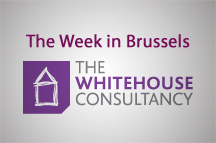 Greece talks continue with revamped team
Greece talks continue with revamped team
Talks with Greece’s international lenders continued this week following a shake-up of the country’s negotiating team. Depending on the spin you believe, Finance Minister Yanis Varoufakis has either been sidelined, as Deputy Foreign Minister Euclid Tsakalotos took charge of the Greek debt negotiations, with Varoufakis still having the oversight of the expanded team, or his position has been strengthened through leading an extended team. Playing down speculation of being downgraded, the Finance Minister stated that he is still leading the negotiations and making the decisions, adding that there had already been cooperation between the members of the new negotiating team.
The change followed a rather eventful meeting last week in Riga, where Varoufakis was criticised for being an “obstacle in the negotiations” and was reportedly called an “amateur” and a “time-waster”. The pro-government Greek press has run stories revealing what they view as a concerted media war against Varoufakis, claiming that officials strategically leak information to the likes of Reuters and the Financial Times to ramp up pressure on the Greek side.
EU pressed to counter Russian “information warfare”
Russia will reportedly spend €643 million this year on subsidising media activity, amid EU and US concerns over “Russia’s ongoing disinformation campaign” on the Ukraine conflict. But the Russian media presence extends beyond its involvement in Ukraine. Kremlin-backed news outfit RT broadcasts in English, Spanish, French and German and occasionally places supplements in mainstream media outlets. Although EU leaders have asked the European External Action Service to create a communications counter-plan for June, the Union’s limited competency on broadcasting and the tight budget mean that responsibility for action will most likely fall on individual member States.
The Baltic states, particularly Latvia and Estonia, are pressing for the creation of a pan-European Russian-speaking channel – and for good reason. Latvia is home to the EU’s largest Russian-speaking minority and a quarter of Estonia’s population primarily speaks Russian. The Nordic states, Germany, the Netherlands and the UK also want to see EU funding for independent Russian-language broadcasters.
The EU needs to be careful to not engage in a propaganda war with Russia but present itself as a credible source of accurate information.
From Google came Gazprom came utilities
Competition Commissioner Margethe Vestager continued her high-profile investigations by launching a probe into subsidies and aid given by national governments to their utilities, following fears that funds aimed at ensuring the stability of supply are being misused. The investigation will look into whether governments favour one technology over another, overcompensate national firms or underinvest in energy efficiency. It is an unprecedented step on the part of the Commission, which has never launched a sector-wide inquiry into state aid, usually focusing on cartels and other antitrust abuses. The investigation is tied into the overarching EU goal of creating an energy union through better linking up different energy markets across the continent.













